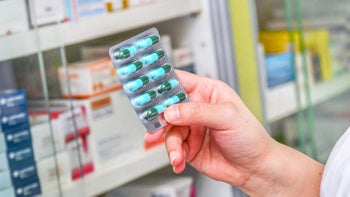
Should You Avoid Artificial Sweeteners During Pregnancy?
Key takeaways:
The FDA and other health organizations consider artificial sweeteners safe to use during pregnancy.
Research on the safety of artificial sweeteners during pregnancy is mixed. Some studies show risks like preterm labor, while others don’t.
If you’re worried about artificial sweeteners, use natural sweeteners instead. Just keep an eye on your overall sugar intake.

If you’re pregnant, you may be wondering if you should be using artificial sweeteners. Artificial sweeteners are in many foods and drinks, and about 30% of pregnant women use them. But are they safe to use while pregnant?
The answer to this question isn’t as straightforward as you may think. Some organizations, like the FDA and the Academy of Nutrition and Dietetics, consider them safe to use during pregnancy. Other health professionals recommend avoiding them completely.
Here, we’ll take a closer look at the issue, and review what the research shows and what health professionals recommend.
Search and compare options
Are artificial sweeteners safe during pregnancy?
In short, the results are mixed. While the FDA has approved artificial sweeteners in general, some experts advise against consuming them during pregnancy. A lot of it depends on the type of artificial sweetener discussed, of which there are currently six.
Which artificial sweeteners can you use during pregnancy?
The FDA has approved these sweeteners and considers them safe for the public, including for pregnant people. Keep in mind, though, that there is still some debate by health professionals on whether some — or any — of these should be used during pregnancy.
These sweeteners include:
Aspartame
Acesulfame-potassium
Sucralose
Neotame
Advantame
Saccharin
Stevia and monk fruit extracts come from naturally occurring plants and fruits. They are generally recognized as safe (GRAS) by the FDA to use during pregnancy.
If you do use artificial sweeteners during pregnancy, it’s important to stay below the acceptable daily intake (ADI) for each. For example, this is less than 24 packets of sucralose (Splenda) per day.
Which artificial sweeteners should you avoid while pregnant?
If you’re pregnant, however, here are a few situations when you may want to avoid certain sweeteners:
Aspartame: Avoid aspartame if you have an inherited disorder called phenylketonuria (PKU). This means you can’t break down a substance called phenylalanine, which is in aspartame.
Saccharin: Saccharin can cross the placenta during pregnancy. We don’t know if this causes any health problems for the baby. But, some medical professionals recommend avoiding it during pregnancy.
What are the risks of using artificial sweeteners during pregnancy?
So far, there are no definite risks associated with using artificial sweeteners during pregnancy. But, some recent studies have found possible risks associated with using them.
Some risks include:
Preterm delivery
Increased birth weight of the baby
But, it’s important to understand that other studies haven’t found the same level of risk. This means we still don’t have a clear answer, and more studies need to be done looking at this question.
Do artificial sweeteners cause birth defects?
There have been some concerns that certain sweeteners — like aspartame and saccharin — can cause birth defects. So far, studies haven’t shown that artificial sweeteners cause birth defects.
Why are some artificial sweeteners bad for you?
Many studies have looked at whether artificial sweeteners cause health problems. But scientists remain divided on the safety of sweeteners. Some studies have linked artificial sweeteners to various health problems.
These problems can include:
Increased weight gain and appetite
Lowered insulin sensitivity
Change in the gut microbiome
Greater risk for stroke and dementia
In the past, there was also a concern that artificial sweeteners cause cancer because some caused bladder cancer in lab animals. Since then, many studies have been done. Still, there is no proof that these sweeteners can cause cancer in people.
What are the healthiest alternatives to artificial sweeteners?
If you’re looking for healthier alternatives to artificial sweeteners, you have several options.
Here are some common natural sweeteners you can use:
Dates
Honey
Maple syrup
Coconut sugar
Molasses
Agave nectar
Keep in mind that even though these sweeteners are natural, they still have sugar. So, it’s important to use them sparingly and not eat more than the recommended amount of added sugar. The CDC recommends no more than 12 tsp and the American Heart Association recommends no more than 6 tsp for women.
The bottom line
Some health organizations, like the FDA, consider artificial sweeteners safe to use in pregnancy. Other health professionals recommend limiting or avoiding them. Research looking at artificial sweetener safety during pregnancy have shown mixed results. Others have found a greater risk for things like preterm labor, but more research is needed.
If you’re worried about using artificial sweeteners during pregnancy, use them as a treat or use natural sweeteners instead. If you do opt for natural sweeteners, make sure to watch your overall sugar intake.
Why trust our experts?



References
American Heart Association. (n.d.). How much sugar is too much?
Bramlet, K. (2017). Artificial sweeteners and natural sweeteners: What to know. University of Texas MD Anderson Cancer Center.
Brigham and Women's Hospital. (n.d.). Substances of concern during pregnancy.
Cai, C., et al. (2021). Effects of prenatal artificial sweeteners consumption on birth outcomes: A systematic review and meta-analysis. Public Health Nutrition.
Caro, R., et al. (2020). Pregnancy myths and practical tips. American Family Physician.
Centers for Disease Control and Prevention. (2021). Get the facts: Added sugars.
Chattopadhyay, S., et al. (2014). Artificial sweeteners – A review. Journal of Food Science and Technology.
Cohen-Addad, N., et al. (1986). In utero-exposure to saccharin: A threat? Cancer Letters.
Conway, M. C., et al. (2022). The consumption of low-calorie sweetener containing foods during pregnancy: Results from the ROLO study. European Journal of Clinical Nutrition.
Fitch, C., et al. (2012). Position of the Academy of Nutrition and Dietetics: Use of nutritive and nonnutritive sweeteners. Journal of the Academy of Nutrition and Dietetics.
Johns Hopkins All Children’s Hospital. (n.d.). Are artificial sweeteners ok during pregnancy?
KidsHealth. (2017). Pregnancy precautions: FAQs.
La Vecchia, C. (2013). Low-calorie sweeteners and the risk of preterm delivery: Results from two studies and a meta-analysis. Journal of Family Planning and Reproductive Health Care.
Liauchonak, I., et al. (2019). Non-nutritive sweeteners and their implications on the development of metabolic syndrome. Nutrients.
MedlinePlus. (2017). Phenylketonuria.
National Cancer Institute. (2016). Artificial sweeteners and cancer.
Pase, M. P., et al. (2017). Sugar- and artificially sweetened beverages and the risks of incident stroke and dementia: A prospective cohort study. Stroke.
Rios-Leyvraz, M., et al. (2022). Health effects of the use of non-sugar sweeteners: A systematic review and meta-analysis. World Health Organization.
Stampe, S., et al. (2022). Artificial sweeteners in breast milk: A clinical investigation with a kinetic perspective. Nutrients.
Tandel, K. R. (2011). Sugar substitutes: Health controversy over perceived benefits. Journal of Pharmacology and Pharmacotherapeutics.
U.S. Food and Drug Administration. (2017). High-intensity sweeteners.
U.S. Food and Drug Administration. (2018). Additional information about high-intensity sweeteners permitted for use in food in the United States.
Yang, Q. (2010). Gain weight by “going diet?” Artificial sweeteners and the neurobiology of sugar cravings. Yale Journal of Biology and Medicine.

























